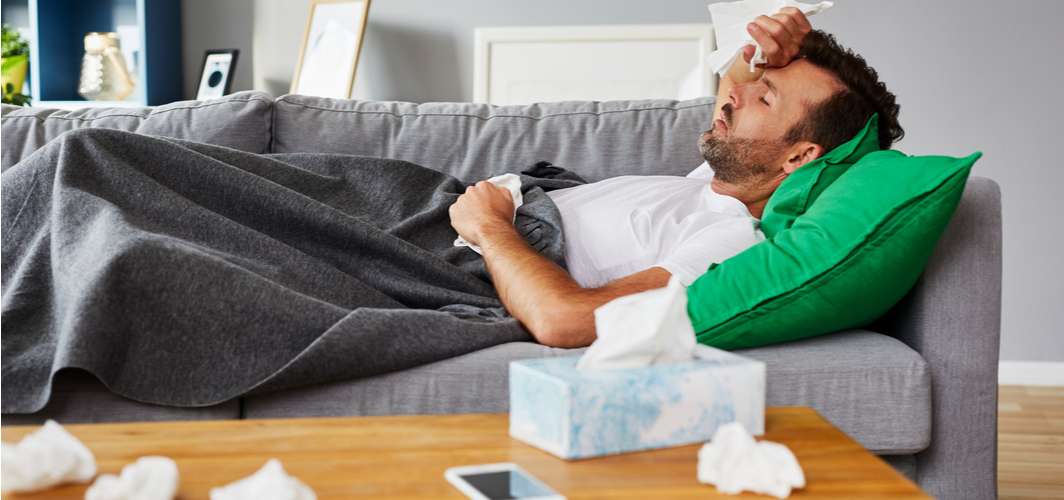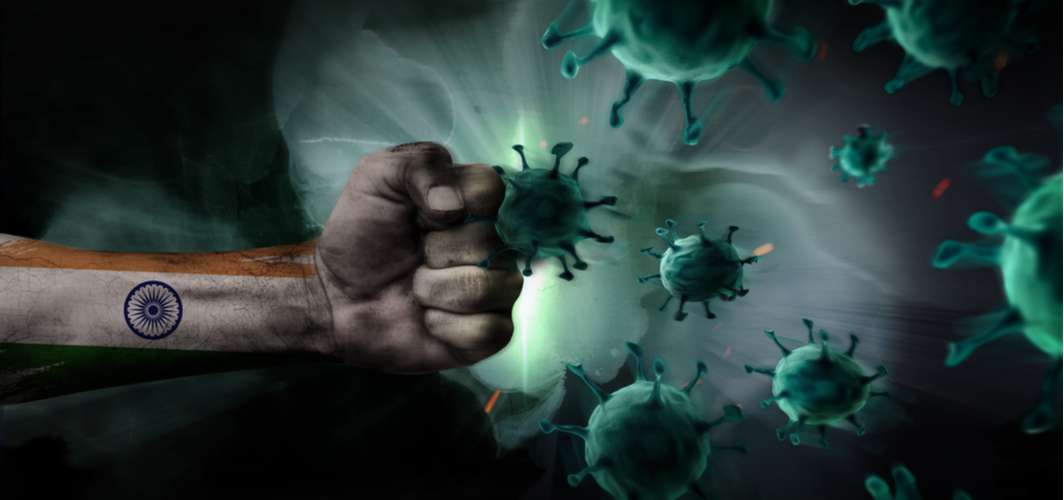Coronavirus Updates
Do You Have COVID-19, a Common Cold, or Just a Seasonal Allergy?
5 min read
By Apollo 24/7, Published on - 01 April 2021, Updated on - 18 October 2022
Share this article
6
102 likes

Until recently, having symptoms such as cough, fever, or a runny nose was considered common and harmless. In present times, it is enough to trigger a health scare. It is well known by now that COVID-19 has several symptoms that overlap with those of common cold and seasonal allergies. As a result, many of us tend to look at these common symptoms through the lens of COVID-19.
Nevertheless, it is important to remember that common cold and seasonal allergies, which were easy to find even before COVID-19 struck, remain widespread. Therefore, having symptoms such as cough or fever does not always imply that you have a COVID-19 infection. So how does one figure out if they have the COVID-19 infection or a common cold or seasonal allergy? Knowing the differences in symptoms that all these conditions trigger can help understand better.
COVID-19
Coronavirus disease 2019 is an infectious respiratory disease caused by the severe acute respiratory syndrome coronavirus 2 (SARS-CoV-2) virus. Since it was first identified in China in late-2019, the contagious disease has spread throughout the world.
The SARS-CoV-2 virus is transmitted when an infected person comes in proximity to another person. The virus spreads via the small respiratory droplets that are released when an infected person breathes, coughs, sneezes, or talks. Other people get infected when the virus enters their bodies via the nose, mouth, or eyes. The virus can also spread when a person touches contaminated surfaces and then touches his/her mouth, nose, or eyes.
A person with COVID-19 can transmit the virus to other people for up to two days before exhibiting symptoms. In moderate cases, an individual can remain infectious for up to 10 days. However, in severe cases, a person can remain contagious for up to 20 days.
Symptoms of COVID-19
According to the World Health Organization, a person with COVID-19 can exhibit any or all of the following symptoms.
Most common symptoms:
- Fever
- Dry cough
- Congestion or runny nose
- Fatigue or tiredness
Less common symptoms:
- Headache
- Sore throat
- Pains and aches
- Loss of smell or taste
- Diarrhea
- Discoloration of finger and/or toes
- Skin rashes
- Conjunctivitis
Serious symptoms:
- Shortness of breath
- Difficulty in breathing
- Pain in chest
- Loss of speech
- Loss of movement
In the wake of the second wave of COVID-19, certain new symptoms of the viral infection have come to light. These include:
- Diarrhoea
- Vomiting
- High fever (more than 101 F)
- Pink eyes (Conjunctivitis)
- Dizziness
- Hearing loss
Recommended Read: What Are the Less Common and Unusual Symptoms of the Coronavirus?
Common cold
Common cold is a viral infection that is mostly caused by rhinoviruses. The infection affects the nose and throat (upper respiratory tract). The virus that causes the common cold usually enters the body via the nose, mouth, or eyes. An infected person can spread the virus through the respiratory droplets by coughing, sneezing, or talking.
It can also be spread by touching surfaces or objects contaminated by the virus and then touching one’s eyes, nose or mouth. In most cases, people recover from cold in 7 or 10 days.
Symptoms of common cold
Some of the most common symptoms of common cold are:
- Cough
- Sneezing
- Congestion
- Sore throat
- Runny or stuffy nose
- Headache
- Low fever
Seasonal allergy
Seasonal allergy, also called hay fever, is usually caused by an inflammatory response to outdoor or indoor allergens, such as pollen (tree, grass, ragweed), dust mites, pet dander, and fungi. The condition is associated with common cold-like symptoms such as congestion, sneezing, runny nose, etc.
Symptoms of seasonal allergy
Some of the most common symptoms of seasonal allergy (hay fever) are:
- Nasal congestion
- Cough
- Sneezing
- Runny and itchy nose
- Pink eyes (allergic conjunctivitis)
- Fatigue
Detailed symptom analysis: COVID-19, common cold, and seasonal allergies
According to the Mayoclinic, whilst there are commonalities in all three conditions, there are a few differentiating factors which would provide clues about what one might be suffering from. This table summarizes the usual symptoms and how they manifest in the affected individual.
|
Symptoms |
COVID-19 |
Common cold |
Seasonal allergies |
|
Fever |
Usually |
Sometimes |
Never |
|
Cough |
Usually (dry) |
Usually |
Sometimes |
|
Sneezing |
Rarely |
Sometimes |
Usually |
|
Runny nose |
Usually |
Usually |
Usually |
|
Sore throat |
Usually |
Usually |
Rarely |
|
Nausea or vomiting |
Sometimes |
Never |
Never |
|
Body pain |
Usually |
Sometimes |
Never |
|
Fatigue |
Usually |
Sometimes |
Sometimes |
|
Diarrhoea |
Sometimes |
Never |
Never |
|
Loss of smell or taste |
Usually |
Sometimes |
Sometimes |
|
Itchy nose |
Never |
Sometimes |
Usually |
|
Pink eye (Conjunctivitis) |
Sometimes |
Rarely |
Sometimes |
How to reduce your risk of COVID-19?
While it may not be possible to completely eliminate the risk of contracting COVID-19, one can significantly reduce the risk of infection by following the below-mentioned COVID-19 appropriate behaviour:
- When outdoors, always wear a mask
- Practice physical distancing in public places (stay at least 6 feet apart from others)
- Avoid touching your nose, eyes, and mouth
- Maintain hand hygiene by regularly washing or sanitizing your hands
- Disinfect commonly touched surfaces and objects
- Avoid unnecessary travel and crowded places
- Get vaccinated once the vaccines are available to you.
Conclusion
Since the beginning of the COVID-19 pandemic, people have become concerned about minor changes affecting their health. The onset of even harmless symptoms can cause panic. However, one should remember that seasonal allergies and the common cold are also widespread at this time of the year. Both these conditions have certain symptoms in common with COVID-19. Therefore, it is important to carefully evaluate and analyze the symptoms and not act in haste.
People who think they might have been infected with COVID-19 can get screened for COVID-19.
Coronavirus Updates
Leave Comment
Recommended for you

Coronavirus Updates
How Does Coronavirus Affect Cancer Patients?
People with cancer may have lower immunity due to which they are at higher risk of severe illness due to COVID-19 and hence, may need to take additional precautions.

Coronavirus Updates
Common Coronavirus Myths and Facts
Seeking the right information from verified sources at a time when we are fighting a pandemic is crucial. You should rely on directives issued by the WHO and MHA for the latest developments about COVID-19.

Coronavirus Updates
What Items in the House Need to be Disinfected Regularly?
Surfaces of our household objects are one of the major sources of Coronavirus transmission. Hence, we should disinfect these surfaces regularly using the disinfectants mentioned in this article.
Subscribe
Sign up for our free Health Library Daily Newsletter
Get doctor-approved health tips, news, and more.
Visual Stories

Can India Beat the COVID-19 Surge?
Tap to continue exploring
Recommended for you

Coronavirus Updates
How Does Coronavirus Affect Cancer Patients?
People with cancer may have lower immunity due to which they are at higher risk of severe illness due to COVID-19 and hence, may need to take additional precautions.

Coronavirus Updates
Common Coronavirus Myths and Facts
Seeking the right information from verified sources at a time when we are fighting a pandemic is crucial. You should rely on directives issued by the WHO and MHA for the latest developments about COVID-19.

Coronavirus Updates
What Items in the House Need to be Disinfected Regularly?
Surfaces of our household objects are one of the major sources of Coronavirus transmission. Hence, we should disinfect these surfaces regularly using the disinfectants mentioned in this article.